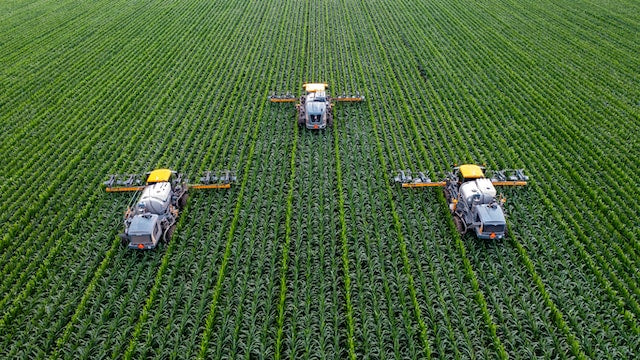Your Cart is Empty
Add description, images, menus and links to your mega menu
A column with no settings can be used as a spacer
Link to your collections, sales and even external links
Add up to five columns
Add description, images, menus and links to your mega menu
A column with no settings can be used as a spacer
Link to your collections, sales and even external links
Add up to five columns

A New Era of Sustainable Food Production
May 04, 2023 2 min read
As the global population continues to grow, the need for sustainable and efficient food production methods is becoming increasingly important. Traditional farming methods are facing challenges due to climate change, limited arable land, and the depletion of natural resources. In response, farmers and researchers are turning to new age growing techniques that can help address these challenges and revolutionize the way we produce food.
Here are some of the most exciting new age growing techniques that are shaping the future of farming:

Aeroponics
Aeroponics uses a nutrient-rich mist to grow plants, instead of water. This method can be even more efficient than hydroponics, using up to 95% less water. Aeroponic systems are also highly space-efficient, making them ideal for vertical farming.

Vertical farming
Vertical farming involves growing crops in stacked layers, using artificial lighting and controlled environments to maximize yields. This method allows for high-density production in urban areas where traditional farming is not possible.

Aquaponics
Aquaponics combines fish farming with hydroponics, creating a closed-loop system that is highly efficient and sustainable. Fish waste provides nutrients for the plants, while the plants help to filter the water for the fish.

Precision agriculture
Precision agriculture uses targeted technology to optimize growing conditions and reduce resource usage. Its often referred to as smart farming, where technology is maximized in implementation. Sensors and data analysis tools can be used to monitor soil conditions, crop growth, and weather patterns, allowing farmers to make data-driven decisions and maximize yields.
While these new age growing techniques offer many benefits, they also come with their own unique challenges. High initial investment costs, specialized knowledge and training, and sensitivity to changes in environmental conditions are just a few of the potential drawbacks. However, as technology advances and farmers gain more experience with these techniques, the benefits are likely to outweigh the challenges.
In conclusion, new age growing techniques are providing exciting new opportunities for sustainable and efficient food production. By exploring these innovative methods, we can create a more resilient and sustainable food system that can meet the needs of a growing global population. Whether you're a farmer, researcher, or simply curious about the future of agriculture, these new age growing techniques offer a fascinating glimpse into the future of farming.
Subscribe
Sign up to get the latest on sales, new releases and more …
